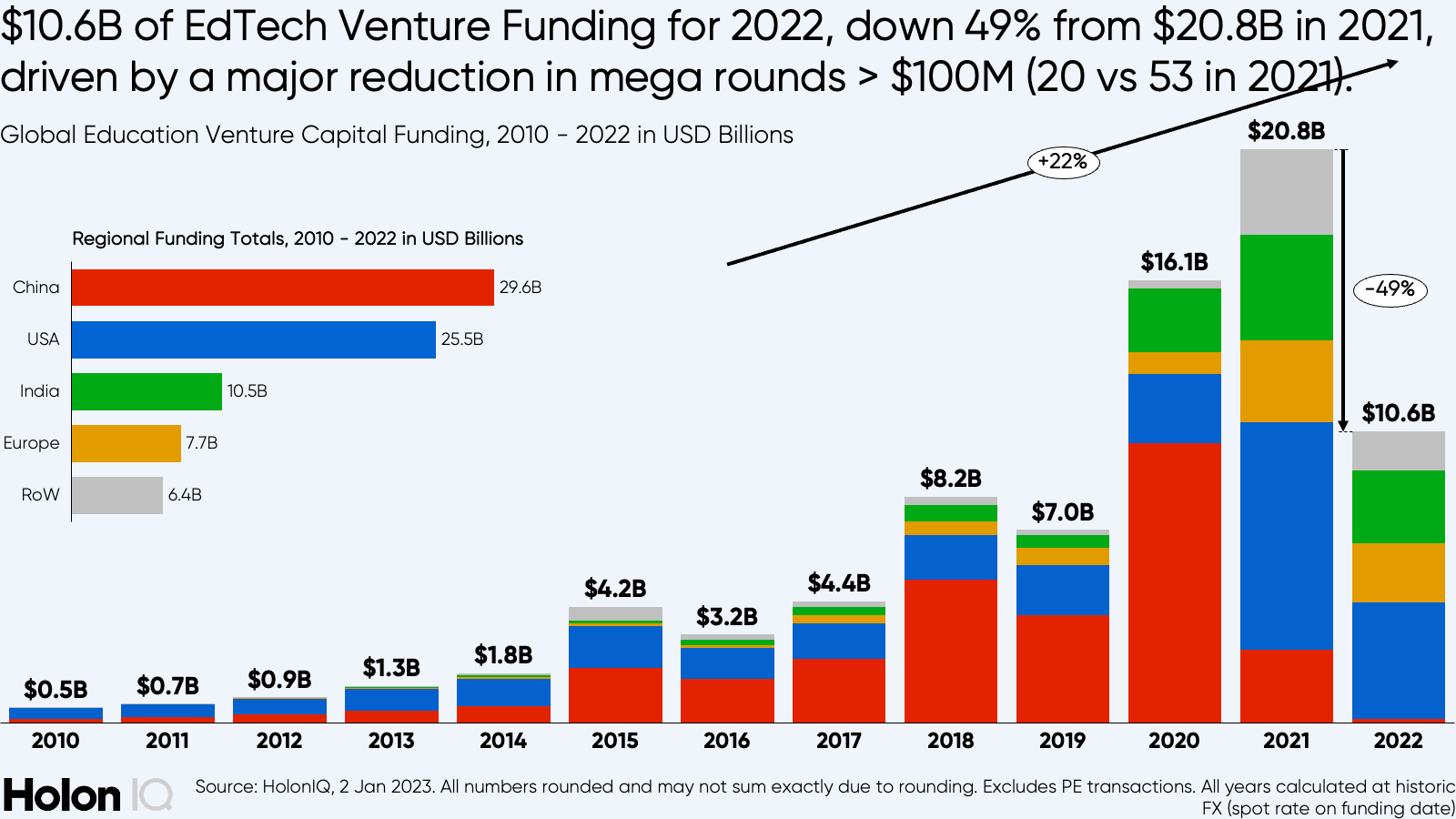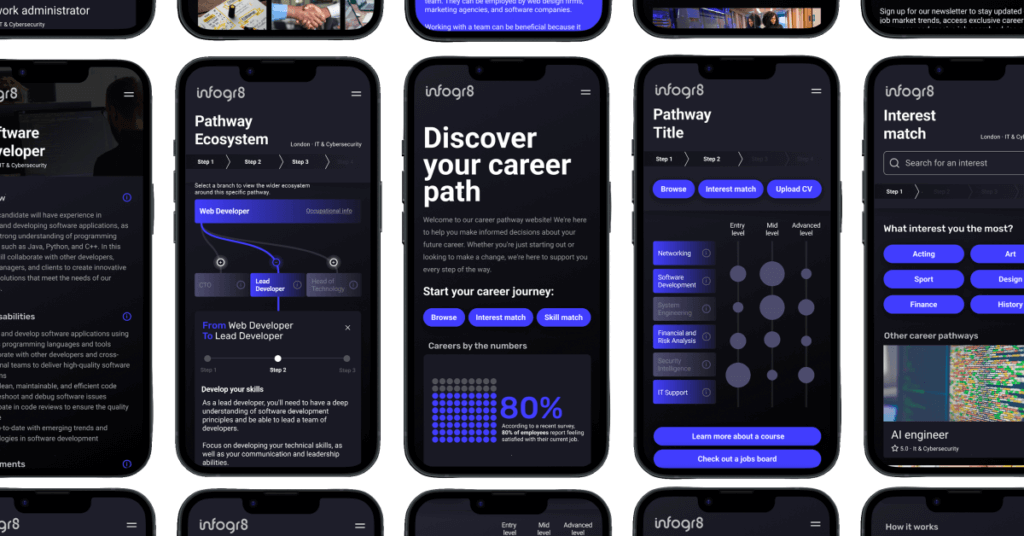 Insight What even is EdTech anyway?
Insight What even is EdTech anyway?
Great question.
Conventionally speaking, EdTech refers to the reshaping of the traditional classroom through the use of augmented technology – and the opportunities this provides through the lens of students, teachers, schools and enterprise.
The word ‘opportunities’ here is key, especially from a social impact standpoint.
The EdTech sector is booming. That’s partly down to a greater propensity to adopt new ways of learning/working post-Covid, and partly down to cheaper, faster and more accessible internet and means of online communication. VC firms invested $20.8 billion in the EdTech sector globally in 2021 – more than 40 times the amount invested in 2010. Granted, capital investment cooled off in 2022 at $10.6 billion, but the industry’s prevalence is still pretty clear. Indeed, according to Google Trends, ‘EdTech’ as a search term hit peak popularity (a perfect score of 100 for search interest over time) in January this year.

The opportunities for those in education? Well, has there ever been a more exciting and liberating time in education? Here are just four reasons why:
- Students and teachers are now open to hybrid learning
- There’s unlimited access to online courses
- Generative AI is pushing us to rethink how we teach and learn
- Mixed-reality and virtual-reality learning soon to be with us (if it isn’t here already)
At infogr8, EdTech extends far beyond the classroom
infogr8 adopts EdTech as a broader catch-all term rather than something solely classroom-based. Instead, we think of EdTech as covering tech-enabled aspects of education, L&D and workforce development, including:
- HR analytics
- e-learning insights
- Education data
- Development programme efficacy
- Skills and salaries differentials
And so much more. Hence our mission statement: ‘Empowering Workforce Development’.
We like how data is key to making this statement a reality. From the classroom to the office, data is used to enable smarter development. Whether you’re an L&D professional looking to maximise your company’s upskilling initiatives, or an individual looking for an edge in your professional development, it’s the data that answers key questions that have previously been logjammed in complexity or lack of transparency. Questions like:
- Is this course achieving proficiency in the necessary skills?
- What does our staff retention look like? How can I fill that talent gap with similar or better people?
- What skills do I need to achieve a $100,000 salary?
- Which degree should I take to go on and become a X profession?
- I’ve been in this role for 3 years, should I look for a promotion? What are my skills, and how do they compare to other people in similar roles?

A preview of our Career Pathways tool, powered by labour market data.
How is EdTech disrupting established models of learning and development?
1. Micro certifications over monolithic degrees
The current school and learning structure is too rigid. Three- or four-year university degrees within one field offer little opportunity to broaden knowledge.
With the growth of online courses, qualifications and certifications, more and more people are treating their education as the sum of smaller building blocks across more diverse fields. In the UK, the recently-launched London Interdisciplinary School is the first UK university since the 1960s to receive Degree Awarding Powers from inception.
And looking at the ever-increasing fees for university degrees, practical applications of learning and development at the micro level are only going to expand further.
2. Upskilling from within
Hiring talent is expensive. It costs far less to train teams and upskill from within the ranks (one estimate stands at 3-4 times the average employee’s salary).
With a tight labour market in both Europe and the US for the foreseeable future, this will be a high priority amongst firms in their planning.
3. Greater scrutiny on career mobility and opportunity
New sources of data are helping to lift the lid and hold companies accountable on career mobility. Incoming generations of talent are placing more emphasis on the inclusion performance and reputation of their would-be employers.
Data allows us to take an objective view of how well a company is doing, and just like how we all want to know if a product is sustainable and good for the earth, we want to know if a company will be good to work for.
infogr8’s EdTech pod unlocks labour data, education and community insights visually through easy-to-use tools that advance every corner of society, from CyberSeek to the American Opportunity Index.
And what is data’s role in EdTech?
OK, so I get how data plays a role, but can you get specific?
Yes, absolutely. Last year, Google announced an ambitious fund to boost the aggregate wage gains of US citizens by $1 billion through their Grow with Google Career Certificates.
It’s hard to imagine a world where data wouldn’t have been key in a) quantifying, tracking and measuring that figure and b) as a medium to look behind the scenes and understand how users are interacting with the certificates, especially in response to key performance questions like:
- What are the course completion rates?
- Which areas of the programme are people struggling with (and which are the easiest)?
- What skills and knowledge are employers looking for the most?
Data’s role is the engine behind driving greater outcomes in education and workforce development. By unlocking that data visually, we can help power the next workforce generation, enable more equitable working environments, and help organisations hire better, future-facing talent.
